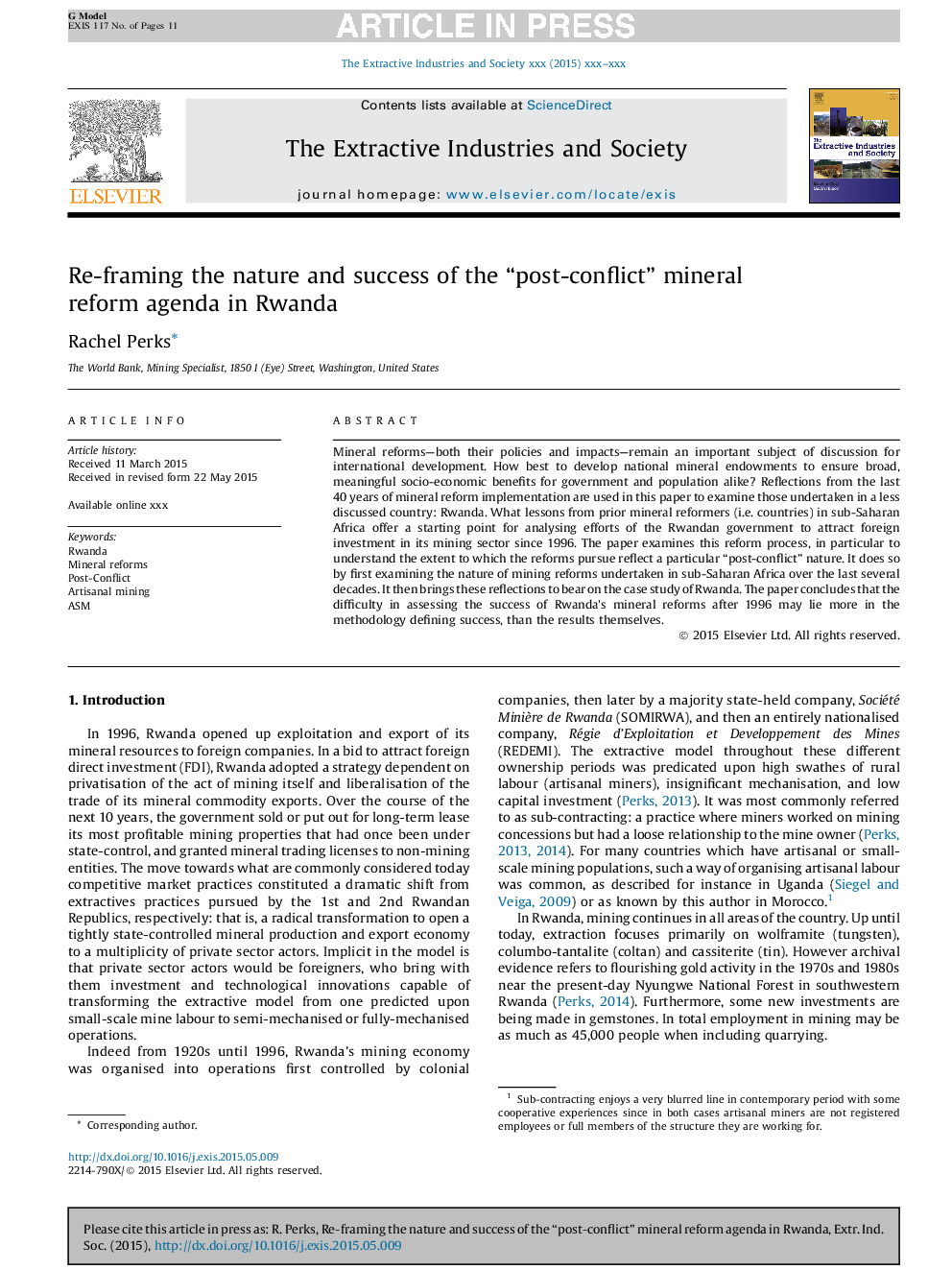| Article ID | Journal | Published Year | Pages | File Type |
|---|---|---|---|---|
| 10502210 | The Extractive Industries and Society | 2016 | 11 Pages |
Abstract
Mineral reforms-both their policies and impacts-remain an important subject of discussion for international development. How best to develop national mineral endowments to ensure broad, meaningful socio-economic benefits for government and population alike? Reflections from the last 40 years of mineral reform implementation are used in this paper to examine those undertaken in a less discussed country: Rwanda. What lessons from prior mineral reformers (i.e. countries) in sub-Saharan Africa offer a starting point for analysing efforts of the Rwandan government to attract foreign investment in its mining sector since 1996. The paper examines this reform process, in particular to understand the extent to which the reforms pursue reflect a particular “post-conflict” nature. It does so by first examining the nature of mining reforms undertaken in sub-Saharan Africa over the last several decades. It then brings these reflections to bear on the case study of Rwanda. The paper concludes that the difficulty in assessing the success of Rwanda's mineral reforms after 1996 may lie more in the methodology defining success, than the results themselves.
Related Topics
Life Sciences
Environmental Science
Management, Monitoring, Policy and Law
Authors
Rachel Perks,
